Government Approves Concession Termination of Vukovar Free Zone
November the 4th, 2021 - The Croatian Government has approved the concession termination of the Vukovar Free Zone, bringing the number of them located on Croatian territory down.
As Poslovni Dnevnik/Marija Brnic writes, in terms of the EU, Croatia is at the very top in terms of the number of free zones - until last week it had eleven, with three being in the process of being ''deleted'' for some time now, and according to the new concession, the Vukovar Free Zone will also join that listdecentia .
The request to terminate the concession came from Vukovar itself, more precisely from the company Filir, which, along with the Fund for Reconstruction and Development of the City of Vukovar, is also the founder of the Danube Free Zone (otherwise known as the Vukovat Free Zone). The 25-year free zone concession was approved back in 2003 and would have been valid until February 2028, but its founders and users have concluded that they no longer want to operate under that regime.
As a reason for revoking the concession, they stated "the current economic situation caused by the coronavirus pandemic, and the need for storage and production facilities in order to expand business."
These reasons and the request for termination of the concession are supported by all six beneficiaries, for whom, as stated in the Government decision, the conditions of business outside the free zone regime will be more acceptable than business in the free zone regime.
One of the explanations is that out of 290 million kuna of revenue in that zone last year, only 2 percent was generated through actual exports. If we compare the data on the operations of all free zones, which was recently the item on the table of the Government, in the last five years in the Vukovar Free Zone there were no major deviations in the amount of revenue, the number of users or the share of exports in terms of revenue.
When it comes to the question of just how further activities will take place after the termination of the concession, so far there's no information from the owner Filir, who is the majority owner of the Vukovar Free Zone with a share of 70 percent.
Doing business in zones of this type brings certain benefits, from tax and customs treatment to lower levies at the local level, benefits in terms of utility fees and taxes from/on salaries. The annual concession fee amounted to 2 percent of revenues generated by users, half of which goes to the state and half to the city budget, but last year the Government additionally abolished the obligation to pay this fee.
Spatially, the Vukovar Free Zone was ''halved'' six years ago, because users requested that the area it covers to be reduced from 21,000 to 7.6 thousand square metres, and of that area, just over 3,000 metres remain operational.
Although the people of Vukovar cite difficult conditions due to the coronavirus pandemic as the reason for the termination of the concession, the Vukovar Free Zone recorded the smallest "earthquake" of all zones in Croatia last year - the revenues of its six users fell by 0.48 percent and the company ended the year with 3.23 percent higher profit, totalling 47.6 million kuna.
Back in 2020, a total of 74 enterprises operated in all Croatian free zones, two more than a year earlier, with 2.6 thousand workers, about 200 less than back in pre-pandemic 2019. Their total revenues amounted to 1.55 billion kuna, which marks an approximate 8 percent lower result than in the year before the pandemic, while profit was more than a third lower, reaching 110 million kuna last year.
For more, check out our dedicated business section.
Delegation of Ministries and County Lays Wreath at Vukovar Memorial Cemetery
ZAGREB, 31 Oct, 2021 - A joint delegation of the Defence Ministry, the Interior Ministry, the War Veterans Ministry and the Vukovar-Srijem County on Sunday laid a wreath and lit candles at the Memorial Cemetery of Homeland War Victims in Vukovar on the occasion of All Saints' Day and All Souls' Day.
The delegation was led by Defence Minister Mario Banožić and included Vukovar-Srijem County Prefect Damir Dekanić, who called for unity.
"With a joint wreath we send a message of unity, a message that no one can joke with or belittle those who gave their lives for Vukovar, Vinkovci, the entire Slavonia, a message to all authorities in Croatia that we must keep together if we want to resist challenges which await us in the coming period, especially in terms of keeping people in this area," said Dekanić.
Asked by reporters why there were no representatives of the City of Vukovar in the delegation, Dekanić said that "it is simply a joint agreement and a joint message from the ministries and the county" and that he, as well as other county representatives, would attend protocol celebrations of All Saints' Day and All Souls' Day wherever they manage to.
For more about Croatia, CLICK HERE.
30 Years of Minefield War Crime Commemorated in Lovas
ZAGREB, 18 Oct 2021 - The people of Lovas on Monday laid wreaths and lit candles at a monument to 21 locals forced into a minefield by Serb paramilitaries and the former Yugoslav Army 30 years ago today.
On 18 October 1991, a few days after entering Lovas, aggressor forces chose a group of 51 residents and forced them into a minefield, where 21 were killed and 14 wounded.
"I hope that those responsible will be brought to justice one day," said Vukovar-Srijem County head Damir Dekanić.
Lovas Municipality head Tanja Cirba said 89 Lovas residents were killed in the Homeland War and that one of the most horrific crimes took place in that minefield. "On that day, another 23 Lovas residents were killed in their houses, garages, and basements."
Justice for the Lovas crimes is far from being served because those who organized and ordered them have not been punished, said Staša Zajović of the Women in Black association from Belgrade.
"We are very worried because dealing with the past in Serbia has been stopped and strong propaganda glorifying war criminals is at work," she said.
In 2007, the Belgrade District Court opened an investigation into 14 people suspected of war crimes against 69 Lovas civilians and an indictment was filed.
In 2012, 14 were found guilty for the deaths of 41 civilians and sentenced to prison terms ranging from four to 20 years. An appellate court quashed the sentence in 2013. A new indictment covered 32 civilian victims due to the deaths of five defendants and a lack of evidence.
In the retrial, the Belgrade Appellate Court acquitted Željko Krnjajić and Milan Devčić and reduced the sentences against Saša Stojanović, Darko Perić, Radovan Vlajković, Radisav Josipović, Jovan Dimitrijević, and Zoran Kosijer. The sentences were reduced to three to six years.
The victims' families and the Lovas municipal authorities are dissatisfied and bitter at such low sentences.
For more about politics in Croatia, follow TCN's dedicated page.
Honey Bottling Plant Opens in Vukovar
ZAGREB, 9 Oct, 2021 - The Api Green company opened a honey bottling plant in the eastern town of Vukovar on Saturday, the first such plant to be operating according to the HACCP standard in Vukovar-Srijem County.
The plant was opened in the Vukovar Business Incubator as part of Honey Days.
"Beekeepers will now be able to increase the number of beehives and sign a contract with Api Green on honey delivery. The honey delivered to the bottling plant will be analysed and labelled as honey from Croatian apiaries," the head of the Vukovar 91 beekeepers' association, Ivan Dumenčić, said.
HACCP is a system that helps identify and control food safety risks in the food processing industry.
The plant has a maximum bottling capacity of one tonne per day, and Api Green invested nearly €25,000 in it.
"In order to improve the quality of honey, Api Green will purchase honey from registered beekeepers, check it and put it on the market," the company's CEO Božena Miličević said.
For more on business, follow TCN's dedicated page.
For more about Croatia, CLICK HERE.
Vukovar Franciscan Monastery Virtual Tour: New Screen Tourism Addition
September 30, 2021 - The Vukovar Franciscan Monastery Virtual Tour is a new addition allowing people to get better acquainted with this amazing tourist site even if you cannot travel to this Eastern Croatian town.
We wish you a pleasant tour filled with God's grace - says the robotic female voice as you click this link and start exploring Vukovar's Franciscan Monastery online. The recently launched option of 360° sightseeing this iconic location in the Eastern town of Vukovar in Slavonia (referred to as the ''Hero City'' due to its suffering in the Homeland War) is an excellent innovation for what's become known as "screen tourism". Whatever your reasons for not being able to physically get to Vukovar at the moment, the Vukovar Franciscan Monastery Virtual Tour is always ready for you to take part.
''The QtouR virtual guide is implemented in the entire complex of the Franciscan monastery in Vukovar, covering over 3,500 square metres. The virtual tour offers visitors an online tour of the museum over two floors, the church, the script, the bell tower with the watchtower, the wine cellar…'' listed the Culture.net website.
Indeed, with this app (its development helped by the Croatian Ministry of Culture), you can explore the Franciscan monastery from every angle you'd usually be allowed to see during your visit. You can either navigate with your mouse or mousepad or even your keyboard to choose which direction you want to go in. From exploring indoors to heading out into the back yard, you can even soak up the breathtaking view of the nearby Danube river.
''Franciscans have had their presence noted in Slavonia and Srijem ever since the 14th century. Sadly, during the Turkish (Ottoman) occupation of these parts, every historical record of their activities was destroyed. Some traces can still be found in various documents of the Franciscan order and in the Vatican archives, however. What we know for sure is that the Franciscans of the Bosne Srebrene (Silver Bosnia) were the only messengers, bishops, priests, and guardians of the Catholic faith in these areas under Ottoman rule,'' reads the official website of Vukovar's Franciscan monastery.
Both the monastery and the church are named after saints Filip and Jakov (Phillip and Jacob). The church was completed in 1733 while the monastery was built in 1736.
''The monastery, along with the church with its monumental architecture, has been home to priceless artistic and cultural treasures for centuries now. It possessed a rich inventory and a library with rare editions along with a small picture gallery. By the sheer complexity of its heritage, it was placed amongst the most valuable memorial sites in continental Croatia,'' explains the monastery's official website.
The history of Vukovar is often clouded by the tragedies of the Homeland War, but while that is and will forever be of enormous significance, there is much more to it than that.
As TCN wrote, the history of Vukovar runs much deeper than the horrendous events which took place at the end of the 20th century, and Croatian historical and social sciences are more than aware of the fact. This was evident in the presentation of the book ''The Cultural Identity of Vukovar – A Contribution to Investigating Heritage and Successors''.
Additionally, as evidenced by the VukovART festival earlier this year, we can see that this town at the very border of Eastern Croatia and Serbia has much more to offer than just the memory of death, war crimes and misery brought about by bullets, hate, and war.
Learn more about Vukovar in our TC guide.
For more about history in Croatia, follow TCN's dedicated page.
Vukovar Ethno Fair Marks the Beginning of Autumn From September 24 to 26
September 19, 2021 - On the last weekend of September, locals and visitors will be able to welcome autumn in the best way at the Vukovar Ethno Fair, enjoying the best products, crafts, and traditions of the city.
From September 24 to 26, the city of Vukovar will hold its 14th Ethno Fair, in which the best of its local products, crafts, gastronomy, music, and folklore will be displayed, reports Turističke Priče. Both city residents and tourists will witness the arrival of autumn feeling the true essence of Vukovar and its people.
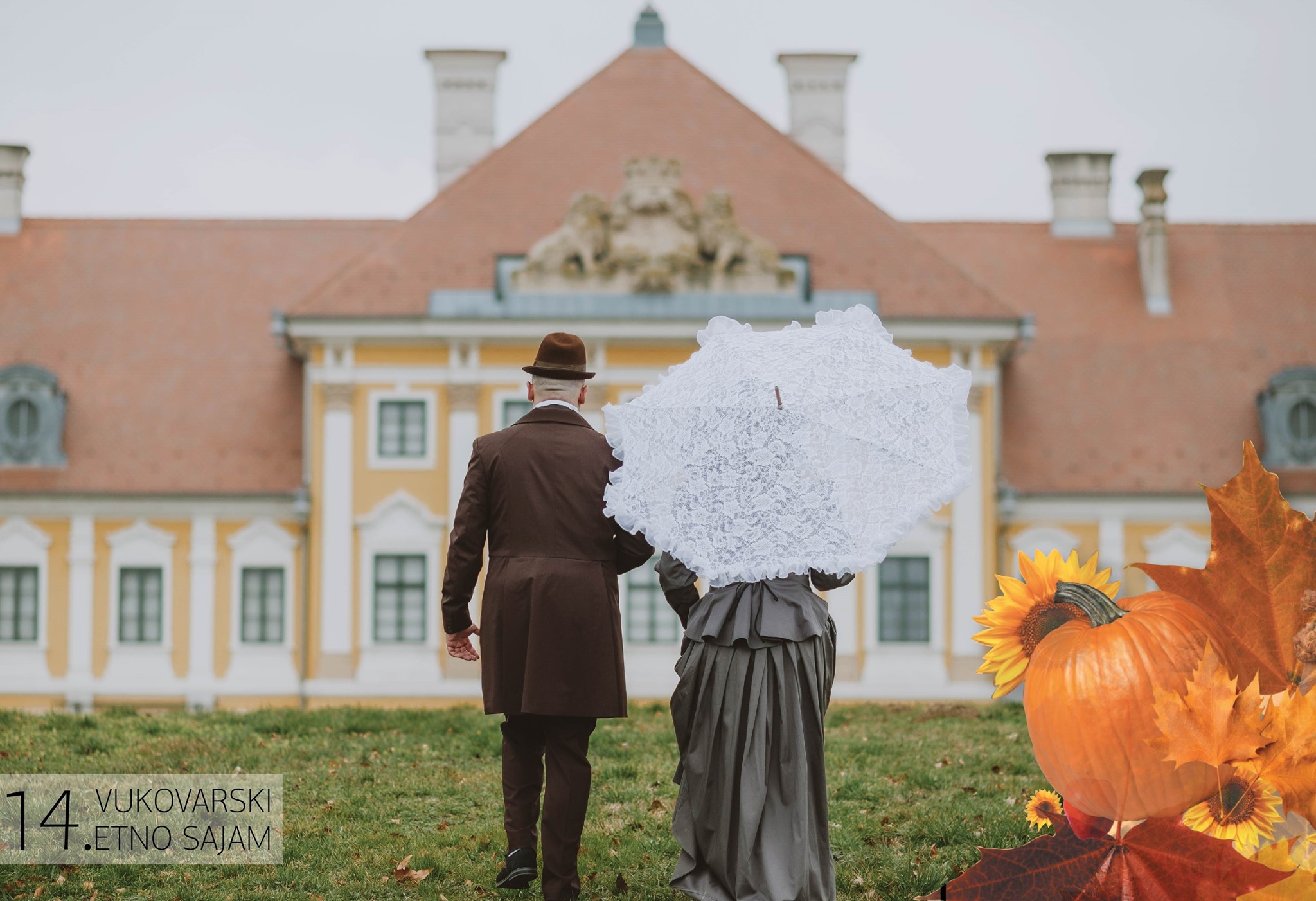
(Photo: Vukovar Tourist Board Official Facebook Page)
The focus will again be on the fair of traditional products and arts and crafts, handicrafts and antiques, and food and beverage producers, where products and services are exhibited by producers from the entire Vukovar-Srijem County, but also Croatia.
We believe that in the three days of the fair, everyone will find something for themselves. Children will be able to participate in one of the five announced workshops in which they will make wooden toys, flower wreaths, shape clay…
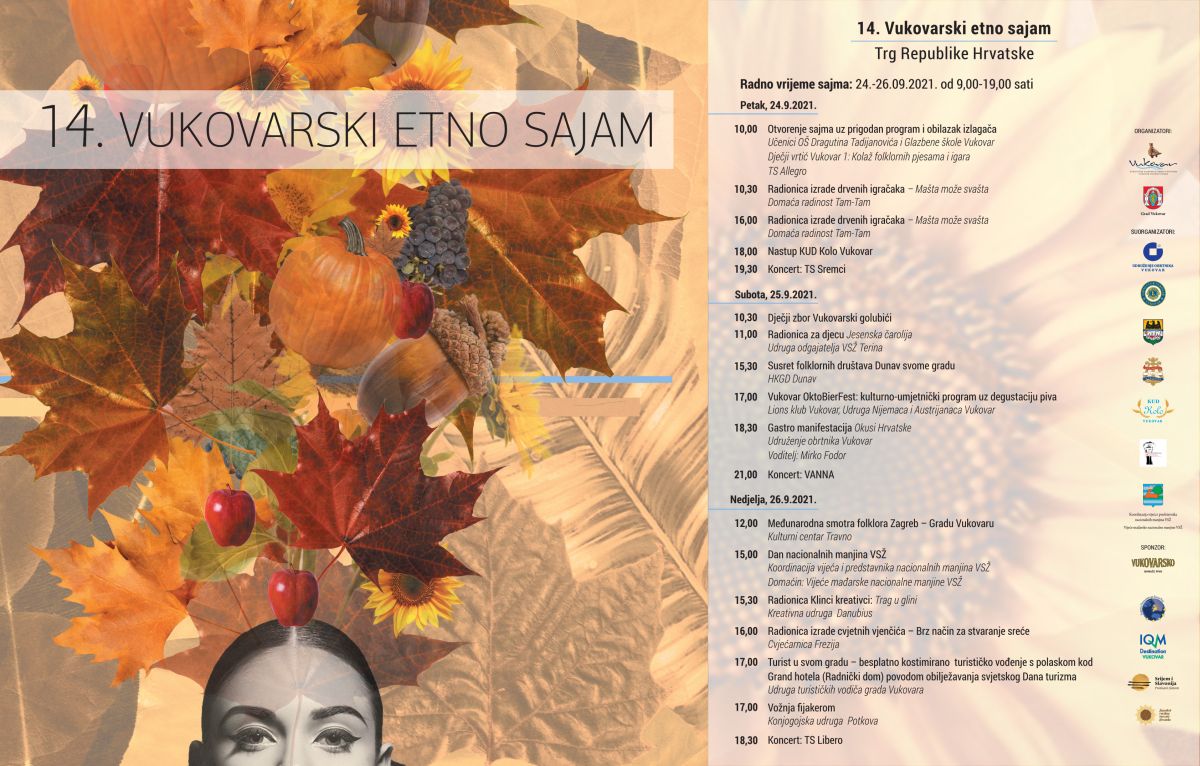
(Photo: Vukovar Tourist Board Official Facebook Page)
Lovers of tradition will enjoy the richness of folk costumes and performances by cultural and artistic societies, both domestic and guest. Namely, after the performance of KUD Kolo from Vukovar on Friday, the Croatian Cultural and Cultural Music Society Danube will host on Saturday the traditional 13th Meeting of folklore societies "The Danube to its city". On Sunday, the folklore part of the Fair will be rounded off by the "International Folklore Festival Zagreb - City of Vukovar".
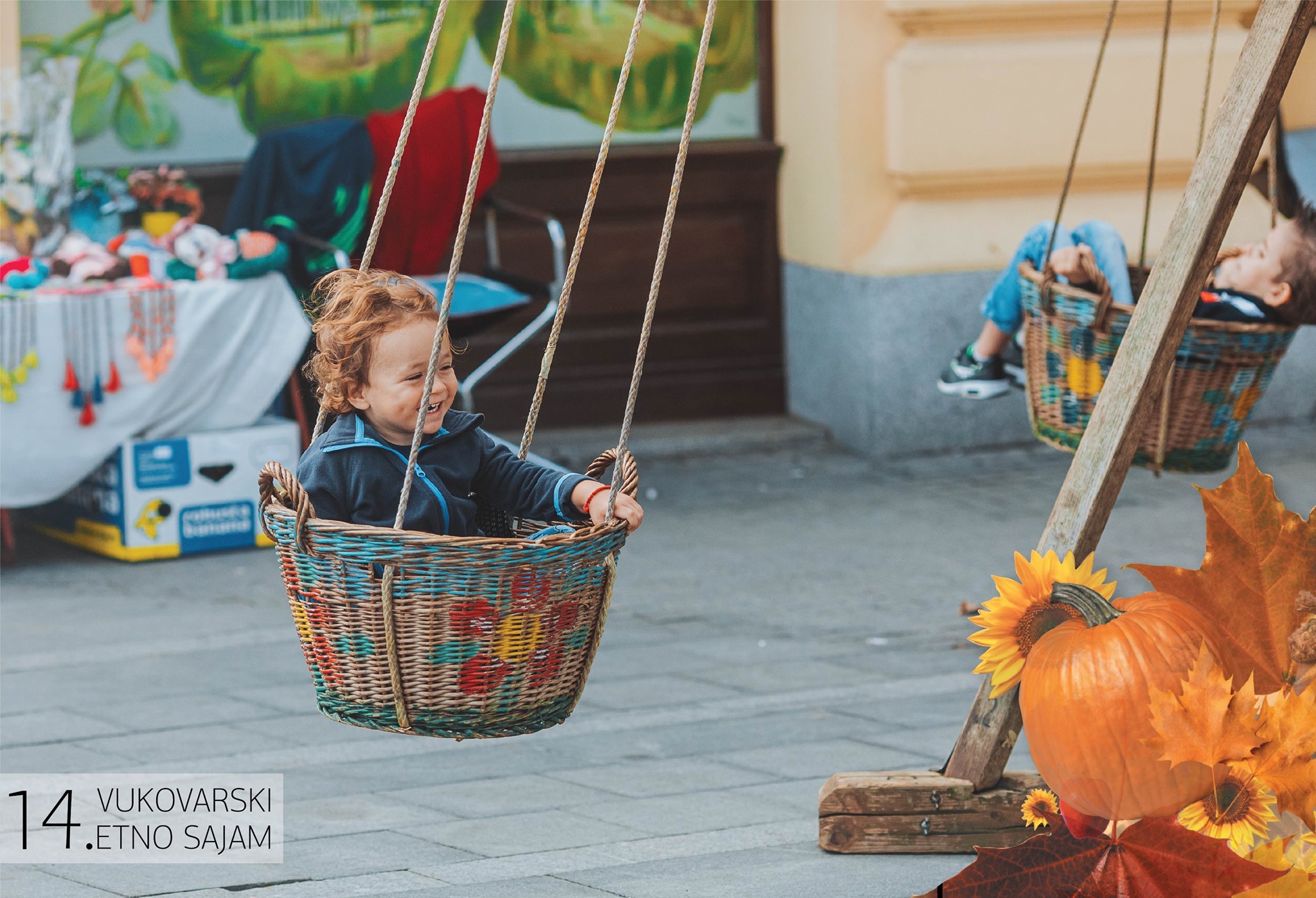
(Photo: Vukovar Tourist Board Official Facebook Page)
In Vukovar, you will be able to try gastronomic specialties from all over Croatia, as part of the fifth gastronomic event "Tastes of Croatia", but also to refresh yourself with Vukovarsko and other beers with a cultural and artistic program with beer tasting on the "Vukovar OktoBierFest".
The music part of the program of the Vukovar Ethno Fair will be opened on Friday by tamburitza players, the Tamburitza ensemble Sremci, and on Saturday visitors will be able to enjoy the performance of the popular and favorite Vanna. Tamburitza players will play on the last evenings of the Fair, but this time visitors will be entertained by the band Libero.
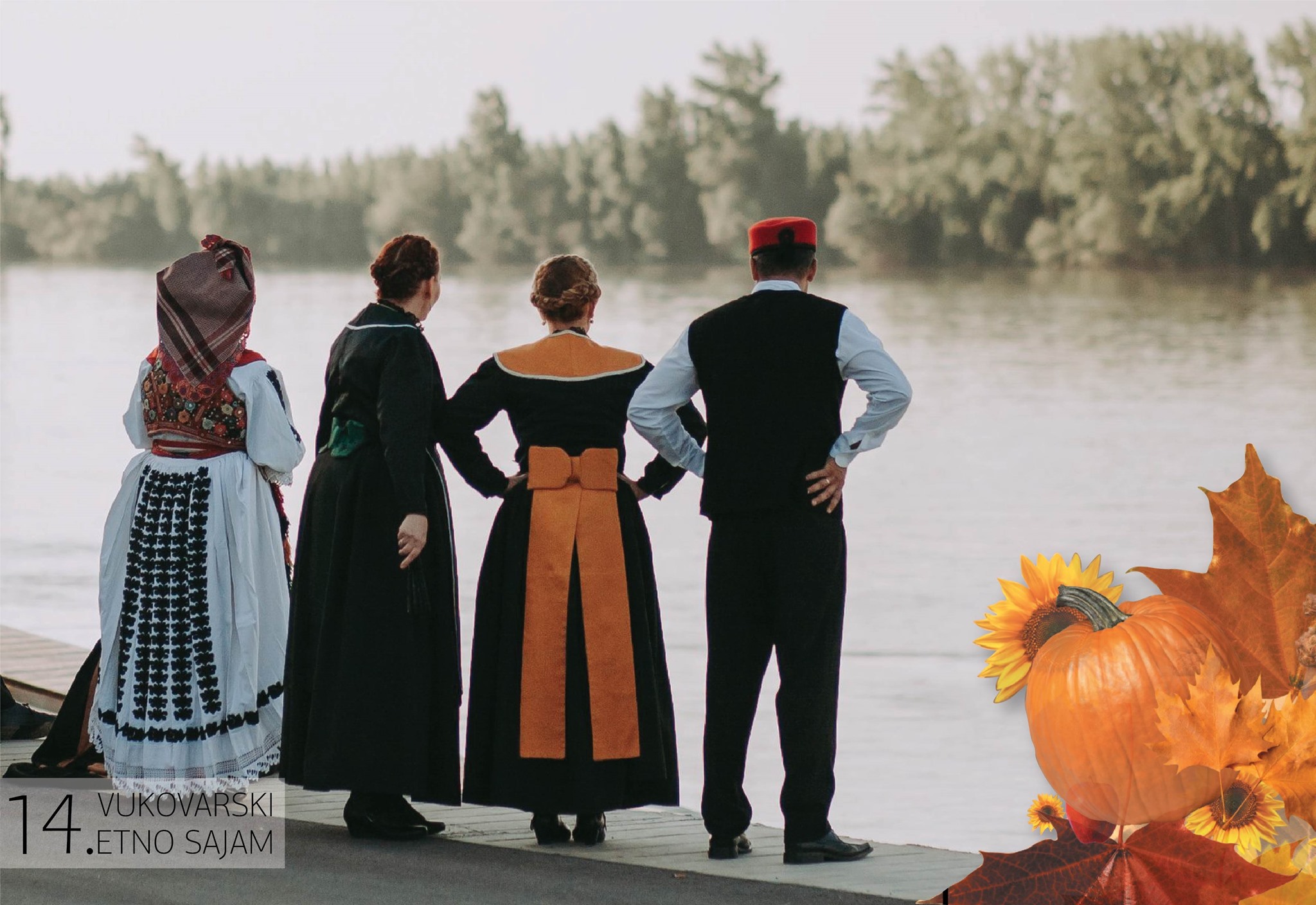
(Photo: Vukovar Tourist Board Official Facebook Page)
On Sunday, September 26, as part of the Vukovar Ethno Fair, the Day of National Minorities of Vukovar-Srijem County will be marked. On the occasion of World Tourism Day, the Guides Association organizes a city tour on the same day, accompanied by costumed guides called Tourist in their city.
Therefore, book the last weekend in September for Vukovar, which always offers you more than you expect.
To learn more about the city of Vukovar, visit Total Croatia's complete guide, Vukovar in a page. Now in your language!
For more, check out our dedicated travel section.
30th Anniversary of Battle of Vukovar Marked
ZAGREB, 18 Sept, 2021 - The Battle of Vukovar was a turning point in the war for Croatia's freedom and independence, and its participants were heroes who deserve admiration, it was said at an event marking the 30th anniversary of the battle in Vukovar on Saturday.
Vukovar was heroically defended in the 1991 battle for three months, after which its defence lines were penetrated and the city fell into the hands of Serb paramilitaries and the Yugoslav People's Army.
The ceremony in Vukovar was attended by numerous defenders and wartime commanders, led by the last commander of the city's defence forces, Branko Borković, President Zoran Milanović and Parliament Speaker Gordan Jandroković's envoys, the heads of Vukovar-Srijem and Osijek-Baranja counties, Vukovar Mayor Ivan Penava, and government members, led by Prime Minister Andrej Plenković.
"More than 30,000 troops, armed with 600 tanks, 500 armoured vehicles and 180 howitzers were deployed to seize Vukovar which was defended by some 6,000 defenders and volunteers. In that 'David and Goliath' battle, by keeping the enemy engaged in the area of Vukovar, Croatian defenders gave an additional three months to the rest of Croatia to consolidate its armed forces," Plenković said at the commemoration.
Battle was of crucial importance for maturing of Croatian democracy
Thanking defenders for what they did in 1991 by defending Vukovar and Croatia, Plenković said the Battle of Vukovar was a decisive battle of the Homeland War that also had a crucial role in the maturing of the Croatian democracy.
"Even though the suffering in the Homeland War is still a painful memory, notably the fate of 1,858 people gone missing, the victorious Croatia extended a hand of reconciliation and trust, respecting the rights of ethnic minorities, including the Serb minority. Croatia remains committed to the values which helped defend Croatia's freedom and democracy in the Homeland War," said Plenković, underlining the need to continue with efforts to shed light on the fate of all missing persons, punish war criminals, secure adequate satisfaction for former inmates of prison camps, and promote the truth about the Homeland War, notably among children and young people.
Speaking of the government's responsibility for the revitalisation of Vukovar and the entire eastern Slavonia, Plenković said that Vukovar had been named a place of special respect, the Vukovar Hospital had become a national memorial hospital, 18 November, the day of the city's fall, had been declared a national holiday, and the Croatian Army had returned to Vukovar while the prospect of bringing to justice those responsible for war crimes had improved.
Borković: Croatia not owing anyone anything, on everyone's conscience
The last commander of Vukovar's defence forces and commander of the 204th Vukovar Brigade, Branko Borković, said that Croatia today was a member of NATO and the European Union and that "it does not owe anything to anyone and is on everyone's conscience."
He said that Croatia is not an accidental state, is not "a successor either to the Ustasha or to Partisans" and was not created in World War II.
Borković noted that in recent years many political and social organisations as well as various office-holders at local and national levels and public figures had knowingly or unknowingly acted below the high standards set by Vukovar's struggle and sacrifice.
As part of today's commemoration, held outside the city's Eltz Castle, Croatian Air Force jets and its Wings of Storm aerobatic team flew over the event. Earlier in the day, state and other delegations laid wreaths and lit candles at the Homeland War Memorial Cemetery.
For more about Croatia, CLICK HERE.
Few Details About New Privatisation Process of Vukovar Port Known
August the 28th, 2021 - Seven very long years after the unrealised first attempt, Vukovar Port (Luka Vukovar) is starting the privatisation process once again. In true Croatian style, many unknowns surround the process, and investors will have many a pitfall to deal with.
As Poslovni Dnevnik/Marija Brnic writes, Along with the Pozega-based Lipovica, in which the process of selling the majority ownership stake is underway, the Vukovar Port privatisation process will also be the most important project initiated by the Centre for Restructuring and Sales (CERP).
The Vukovar Port privatisation was also announced in the annual plan of CERP for the year 2021, and the tender, as confirmed to us in CERP, will be announced only at the end of this or the beginning of next year. The reason is the preparation of all the documentation, which requires an expert assessment in terms of value.
According to the regulations, it is being carried out by "external" experts hired by CERP on the basis of annual contracts. However, this year the procedure became ''stuck'' owing to technical reasons, because none of the auditing and brokerage houses that compete by default applied for the first tender for the job.
The estimated value of this work otherwise stands at 240 thousand kuna. Meanwhile, the tender for appraisers has reopened and according to the latest information and signals coming in, it is expected to be successful this time and bids will arrive by September the 10th, 2021.
For Vukovar Port, this means that a new valuation would begin in the autumn. It would be new because the first one was carried out one year ago, and when asked why this procedure is being repeated, CERP said that last year it was all carried out on the basis of data on operations from pre-pandemic 2019 and the first half of 2020, and that due to difficult conditions caused by the coronavirus pandemic, there's now a need to determine the new state of this Vukovar company.
However, privatisation is being prepared, and according to what is currently unofficial information, the interest of potential investors exists, as it did seven years ago, when five offers were received from foreign companies and one from a Croatian company. Now the interest could be even greater, because after Croatia's entry into the Schengen area, Vukovar Port will become an entrance river port to the European Union.
It has been calculated that the candidate for the takeover would be among companies in the field of river transport and trading companies from many countries, from the Netherlands, Austria to Romania and even neighbouring Serbia, but also possibly Croatian ones, such as Petrokemija. That said, so far no one has come forward, only the preparations for privatisation are being monitored, because this venture has too many unknowns and open questions above its proverbial head at the moment.
The first uncertainty that makes it unlikely that the process will be completed in the first round is the problem of the concession that Vukovar Port has until 2026. Namely, the legal framework prevents the Croatian state from issuing a new concession before the expiry of the existing one, nor is it possible, as a seller, to guarantee the future owner that after that time he will receive a new, fifty-year concession.
In five years, therefore, the owner will have to, like other potential interested parties, apply for a public tender for the concession.
Vukovar Port already has investment projects in the pipeline, as there's no possibility of capacity expansion on the existing 2.2 hectares. One of the possibilities would be the eventual project of putting into operation the currently non-operational property of Borovo, whose 18.5 hectares would be purchased by the state, ie the Port Authority, and at that location, Vukovar Port would be interested in building its new transshipment terminals and storage capacities.
For further business and investment projects, however, the realisation of the Danube-Sava Multipurpose Canal project, worth more than one billion euros in total, which envisages the relocation of Vukovar Port from its existing location, will also be important.
This project is built into the state's development strategy, but opposition, from all political options, comes from the level of the City of Vukovar, which sees its implementation as the weakening of Vukovar Port's position and the demolition of the foundations for its development. Which of these options Vukovar Port can expect from any future investor is still difficult to predict or assess and will certainly be the subject of most future lobbying.
The company, which has had 65 employees in recent years, even enjoyed a profit in pandemic-dominated 2020, although revenues, given the general reduction in turnover, were lower, falling from 14 million in 2018 down to 13 million. Looking at previous years, Vukovar Port has had 4.8 million kuna in transferred losses, but it is rare for a company to have no credit indebtedness at all, and the value of the share capital stands at 35.7 million kuna.
From a short conversation with the director, Marijan Kupresak, it has been learned that for last year's results, in addition to the issues caused by the pandemic, the investment in the electrification of the railway was also important, which left a mark on the business this year as well.
Due to intensive work which has been going on, progress was exposed to frequent traffic stops, even greater than announced, and as a consequence of this extraordinary situation, some diverted their goods past Vukovar Port, bypassing it entirely.
The completion of works on the electrification of railway infrastructure is planned by the end of next year, but most of the rough work will be completed earlier, so Vukovar Port expects traffic to finally normalise by the end of this year.
Given that in the meantime some of their partners have switched to more expensive, truck traffic, one of the temporary solutions being negotiated with the competent government ministries is financial compensation to cover part of these price differences.
The announcement that Vukovar Port will finally go into privatisation is an important bit of news on the scene, but given all the unknowns and possible pitfalls for investors, it is difficult to expect that a quick and easy sale process will be done according to the "seen-bought" system.
For more, follow our business section.
Ending Segregated Education in Vukovar? Mayor Ivan Penava Announced an Idea
June 25, 2021 - Is there any possibility of ending segregated education in Vukovar? Mayor Ivan Penava announced Serbian and Croatian education could merge in school and kindergarten levels, but more details are yet to be revealed.
The start of the week saw interesting news that surprised many. As reported by N1, Ivan Penava, the mayor of Vukovar, announced Croatian and Serbian classes and kindergartens could merge together.
Vukovar, often referred to in Croatia as the „Hero City“ for the heavy blow it suffered in the 90s war Croatians refer to as Homeland War, still has a lot of ruins as memories of that ugly past. In the light of national tensions among Serbs and Croats, the segregation of kindergartens and different shifts in schools for Serbian and Croatian classes seem to be a solution to keep the peace.
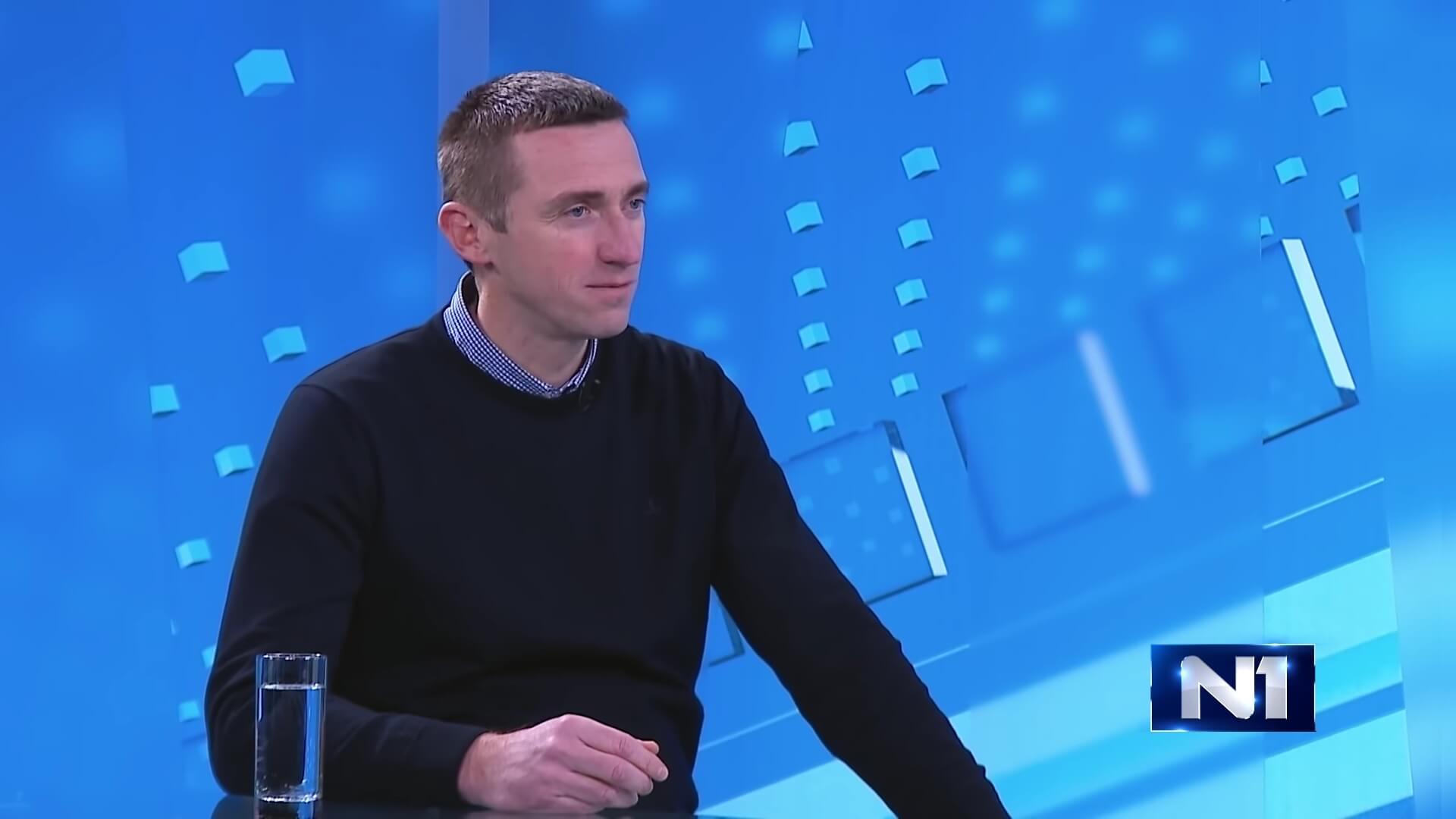
screenshot/ N1
Good idea but more talks needed?
„In Vukovar, parents do not choose the model of education that is imposed by politics, it is nowhere written in public“, said mayor Penava, as reported by N1.
Penava, a former member of the Croatian Democratic Union (HDZ), despite earning a new term in the recent local elections as an independent candidate, enjoyed support from Miroslav Škoro, runner-up candidate for Zagreb mayor elections, and the leader of the Homeland Movement (DP) supports Penava's idea.
„I lived in America for a number of years, in Hungary, I traveled the world... what is the difference between Serbian and Croatian mathematics? Is Argentina in Serbian in the northern hemisphere, and southern in Croatian? I don't get it“, said Škoro adding that segregation was done in malice with a tendency to divide children from the start.
„In Vukovar, the symbol of defense had priorities. Reconstruction of the water tower, and certain moves Penava did well in his last term (he wouldn't win elections if he hasn't), thinks that city needs to move on. I support him 100%“, concluded Škoro.
On the other hand, criticism is erected on national-level politics.
„I don't think that local officials are the ones who need to determine a way in which minority education will be conducted. Political trade is clear here, and I'm glad there is no longer just Serbian-Croatian trading coalition, but also another one“, said Dragana Jecov, a Croatian parliament member from the Independent Democratic Serb Party (SDSS) referring to the accusations of the right-wing that current coalition of HDZ and SDSS and is vile political trade.
Interior Minister Davo Božinović also said that while we need to work on erasing national, social, and political tensions, but this is a question that needs to be discussed more seriously.
Additionally, as N1 reported, the Ministry of Education pointed out that different models of education for Vukovar schools exist, and parents can choose which they find most suitable.
Accepting national differences or nationalistic uniformity?
Some improvements have indeed been seen in the city infrastructure, but Vukovar still remains a challenging place to live. Partly due to the tough economic situation, but also because of discrepancies among Serbian and Croatian residents. Earlier in June, there was even a violent incident when a 30-year-old Serbian member of the Grobari football fan group physically attacked a Croatian 13-year-old boy in front of a bakery for having a medicine mask with Croatian symbols.
„Sadly, this kind of thing happened too long in Vukovar, where people attack each other because of national disputes. Media aren't even introduced to some of these events. It is spread a lot, as evident by the constant police patrols around Vukovar high-schools where there are always police cars around“, said Vukovar police to Večernji List daily newspaper.
Such incidents, a misfortunate loose ends of the war, also come from the Croatian side. Earlier in May, a group of young men chanted anti-Serb slogans in Borovo Selo (close to Vukovar), a scene of heinous war crimes in the '90s), sparking condemnation from both president Milanović and the Croatian Government.
In that light, integrated schools might finally bring positive changes in regards to tolerance and peaceful life for Vukovar citizens. But again, not everyone sees the glass as half full.
Index.hr columnist Gordan Duhaček agreed in his column that Serbs and Croats don't need to go to separate shifts but warns how Penava isn't the guy that should unite them.
„Penava doesn't want to integrate Vukovar schools and end the troubling segregation in a way to ensure a better future for the whole city, but instead to impose his nationalistic, often anti-Serbian narrative as the official one. Penava wants that Vukovar Serbs bow down to his view of the Croatian state“, wrote Duhaček.
Duhaček also reminded the readership of the attempt and fail of the Danube International school that supposed to integrate pupils of both nations, an idea that spawned 16 years ago. But, the project failed, and Duhaček sees both Penava and SDSS leader Milorad Pupovac not feeling too sad about it.
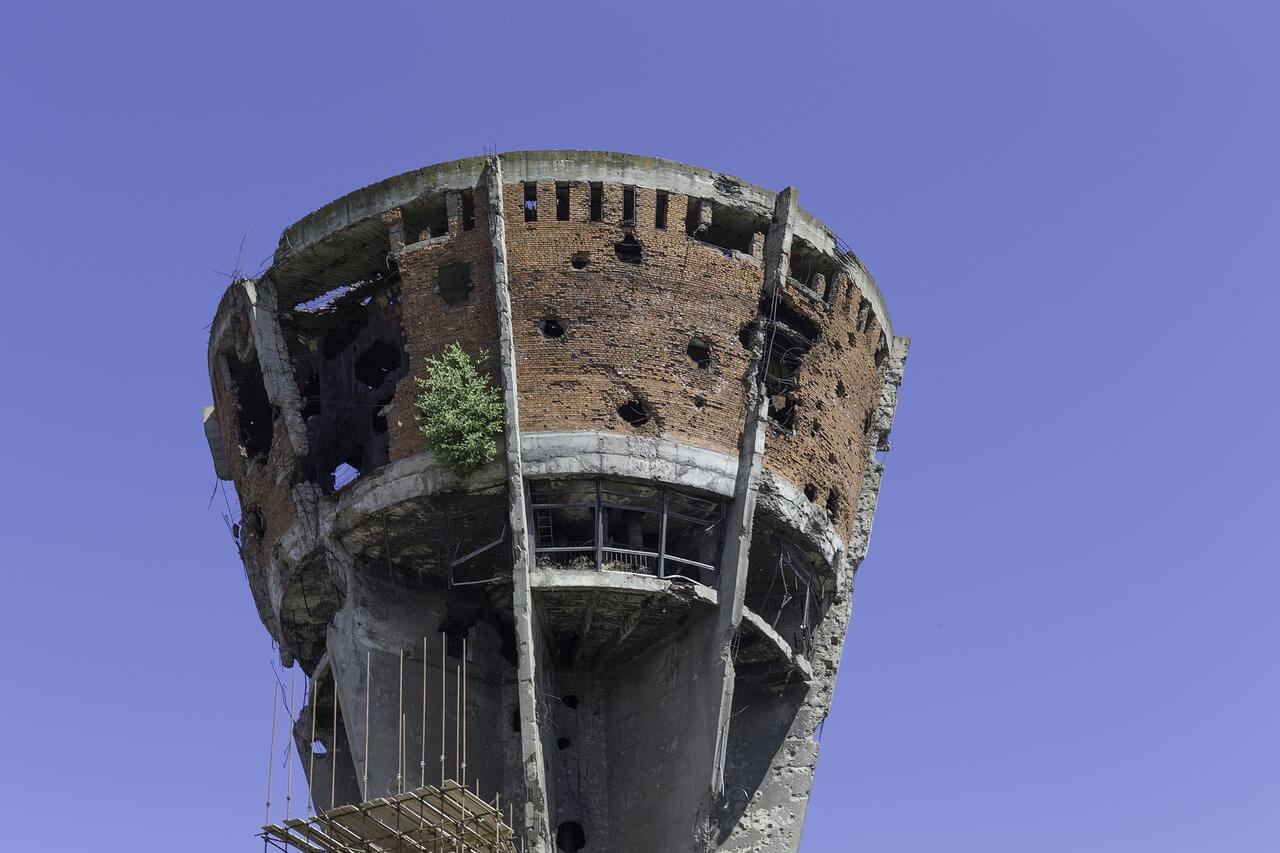
Iconic Vukovar water tower, pixabay
Questions on details
At the end of the week, the situation seems more confusing than clear. Is class integration a good idea? Could it save money for the city financially? What are some actual details of merging Croats and Serbians into one class? Obviously, Škoro is right that 2+2=4 in any math class around the world. But, troubling questions appear in subjects such as language and history. Croats and Serbs sadly have their own, different interpretations of historical facts, particularly when it comes to the last war, and while the speakers of two languages perfectly understand each other, some words do differ, and there is a different accent and spelling in the two formal languages. So, how can these issues be resolved? Would those two subjects remain in different shifts while universal subjects such as biology, math, or physics will listen in one merged classroom? Or will there be a different curriculum that would present both Serbian and Croatian history, Serbian and Croatian literature in that way, making Vukovar pupils more knowledgable in those areas than other pupils in the country?
Or some curriculum consensus on history could be reached, one that would satisfy both the Croatian and Serbian sides and thus truly open a doorway to the better understandings of the two nations in the future in perhaps the most nationally torn city in Croatia?
Obviously, Vukovar city authorities have some tensions with SDSS, but the city also has an expert associate for the development of civil society and national minorities, Siniša Mitrović in one of the City's departments. Did Mitrović manage to gain input from the Serbian minority in Vukovar about this merge? And how fast could the whole thing be realized? This autumn or maybe a bit later?
These are important and interesting questions that can only be answered either by mayor Penava himself or perhaps Josip Paloš, the director of the Vukovar City Education Department.
„Mayor Penava is in a lot of meetings and on fields, and his schedule is full. We will sadly not be able to answer you by your Friday deadline, but we will contact you at the earliest convenience“, said the lady at the Vukovar City PR service when I called them (and E-mailed) with a wish to arrange and conduct a brief phone interview.
While this article may present the current issues surrounding segregated education in Vukovar, this TCN reporter hopes mayor Penava will share more details about his plan on ending segregation in Vukovar schools and kindergarten with joint classes. If done right, this move can indeed be the way to a better, more peaceful future for Vukovar citizens.
Learn more about Vukovar on our TC page.
For more about education in Croatia, follow TCN's dedicated page.
Cultural Identity of Vukovar: New Book Presented in Vukovar
June 9, 2021 - The fascinating question of the Cultural Identity of Vukovar is researched in a new book edited by Dr. Mateo Žanić and Petar Elez. However, as the editors stressed in the introduction, further research is needed to encompass all social groups in Vukovar and their contribution to the heritage of Vukovar.
After being published back in April this year, the book „Cultural Identity of Vukovar – Contribution to Investigating Heritage and Successors“, was presented this Wednesday in Vukovar. As Ivo Pilar Social Research Institute writes on its website the book was published in cooperation with the Vukovar State Archive, so it was only suitable that the first book presentation was held in Vukovar at the videoconference hall of College Of Applied Sciences „Lavoslav Ružička“ (named after a famous Croatian chemist whose work is awarded a Nobel Prize). In addition, the event marked International Archive Day.
The book was edited by Dr. Mateo Žanić and Petar Elez, and the presentation, alongside editors, saw scientific experts Dr. Dražen Živić, Mirela Hutinec, and Dr. Domagoj Tomas talks about the book.
„Fast events triggered by globalization process and information revolution which paradoxically lead to today's societies being fiercely occupied with the meaning of past, and preserving its valuable traces. In that context, there is a spreading interest for heritage that holds an important component to understand the relationship between the past and present“, says the editorial introduction of the book.
The editors went on to explain how „the city proved to be futile to interpret the meaning of heritage and its contribution to cultural identity,“ and the editors wanted to present various aspects of Vukovar's cultural heritage.
Apart from editors Žanić (who wrote a chapter „Layers of memories and material heritage in modern-day Vukovar) and Elez (author of the chapter „State archive in Vukovar and development of archive service in Vukovar-Srijem County“), the book features eight more authors. Ivan Rogić (Whose Heritage? Who is the successor?), Dražen Živić (on Vukovar's feudalists), Vlasta Novinc („Danube, food, Corso“), Dragana Drašković (on the cultural life of Borovo Selo), and more by Dragan Damjanović, Toni Roca, Ivana Bendra and Ivan Hubalek.
With these broad presentations of culture and heritage in Vukovar, editors hope this book will encourage further research as they are aware this is certainly not the final word on these interesting questions and issues.
„As editors, we are aware that the book does not deal with topics that concern different social groups that left their trace in Vukovar end enrich the history of the city. We hope that future editions that will deal with this topic expand the reach of issues and help us to realize better what do we inherit from the past and why is that important“, concludes the introduction of the book.
So far, the book is available only in Croatian, and research that will, as editors say, deal with other social groups in Vukovar is yet to come. Keeping in mind the terrible aftermaths of the war in Vukovar in the 90s and inter-ethnic tensions, further findings on joint cultural contribution to Vukovar may indeed be the enlightenment needed for peaceful cohabitation and development of Vukovar as a perspective city in Croatia.
Speaking of heritage, learn more about UNESCO recognized heritage in Croatia on our TC page.
For more about science in Croatia, follow TCN's dedicated page.


